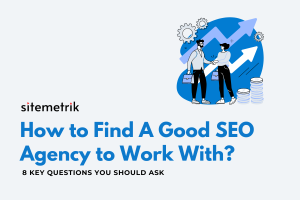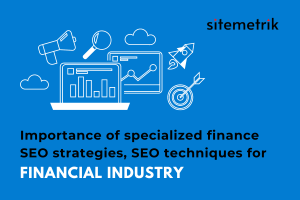8 Business Growth Strategies for Established Businesses That Work
Congratulations! You’ve built a profitable company. You already know that the difficult part isn’t finished, even if it has been years or only a few weeks. If you want your business to grow with you, you must continue to grow and expand. Although there are constantly fresh market trends that can help your brand remain relevant, the following eight tactics will guarantee that your business thrives in the face of competition and downturns in the economy:
Commit to fully understanding your target audience
You’ve probably heard this one before: “Know your audience.” It’s good advice, but not all audiences are created equal. So it’s important to understand that different businesses have different target audiences, which means they need to know those audiences differently.
To do that, you’ll need to fully understand your target audience. That means understanding their pain points; their needs, wants and desires; their demographics; their buying habits; their goals; the values they hold dear (or don’t); what concerns them most in life right now—really everything there is to know about them.
Once you’ve established a clear picture of who exactly is going to be purchasing from you, then it will become easier for you as a business owner and entrepreneur/manager figure out how best to sell your product or service directly into those hands (and minds!).

Offer new solutions to existing problems
Sometimes you have to go beyond the constraints of your existing products and services to come up with new solutions. To do this, you must think outside the box—or rather, outside of your business model.
For example, if you run a cleaning service that specializes in residential homes and offices, consider adding a commercial division for small businesses and shops. If you’re an app developer who makes games for kids under five years old, offer some educational apps for older children as well—or even adults!
If you only sell organic tomatoes from Florida farmers at local markets, can’t you find another way to bring those same tomatoes directly to consumers? Think outside the box; there are likely many ways that don’t immediately come to mind.
There’s nothing wrong with being proud of what your company has accomplished thus far; however, if it doesn’t evolve or change over time then eventually other companies will move into its niche market space (as happened recently with Blockbuster).
Take a fresh look at your content marketing
- Content is king.
- Content marketing is a great way to attract new customers and build trust with existing ones.
- It’s time to take a fresh look at your content marketing strategy, including:
- What type of content do you share? (blogs, videos, infographics)
- How much time are you spending producing each piece of content? Is it worth it? How many people are seeing these posts? Are they converting into sales opportunities?
- What channels do you use to distribute this information–and how effective are they at getting results for you!
Branch out with new products or services
The definition of a business is to offer something of value to others. If you provide services, your main goal is to solve problems for your customers. But what if you can’t find any more problems that need solving? How do you grow an established business when there are no more opportunities within the same industry? The answer is simple: branch out with new products or services!
When analyzing business growth strategies for established businesses, it’s crucial to recognize that companies focusing on a single product or service may face more limited opportunities compared to those with a diverse offering. For instance, a bakery dedicated solely to cookies and brownies might find expanding its menu simpler than a bakery that already includes muffins, cake pops, and cupcakes. Diversification allows for more flexible adaptation to market demands, which is essential for sustained growth.
You may be able to identify untapped areas by looking at the needs of people around you; if there’s something missing from their lives but it doesn’t exist yet (such as a smartphone app), then why not create it yourself? And once those individuals start using it, word spreads quickly through social media channels like Facebook and Twitter—and suddenly everyone wants one too!

Make sure your brand is consistent in every channel
Among your most precious assets is your brand. It’s a pledge you give to clients, and it’s how they recognize and relate to your company. This is the reason why maintaining consistency in branding is crucial: Maintaining a constant image shows that you are dependable, trustworthy, and dedicated to keeping your word. This promotes loyalty and trust.
Assume that each channel has its own distinct visual language or color scheme (e.g., social media signage utilizes a different typeface than in-store signage). Customers might then be unsure of what each channel represents and be less inclined to believe its message since it differs from other channels’ appearance.
On top of that, consistency builds customer recognition: Customers who see the same look across multiple channels will begin thinking of those channels as connected under the same brand name; they’ll associate those messages with one another without even realizing it!
Focus on increasing customer loyalty instead of converting new leads
When it comes to growing your business, you should focus on increasing customer loyalty instead of converting new leads. This can be done by creating a personalized experience for your customers and learning how they want to interact with you. Here are some ways that you can do this:
- Ask for feedback from current customers about what they like about working with your business, as well as their suggestions for improvement. Be sure to act on those recommendations!
- Ask clients if there are any products or services that could make their lives easier or more productive in some way and then offer them at a discounted rate until the end of the month.
- Make sure that all of the products and services offered through your company have value—if it doesn’t add real benefits for clients, then don’t sell it!
Don’t ignore the importance of SEO, even if your business is already established
- SEO is a continuous process. It’s not something you do and then sit back and relax, because it’s always changing. You need to keep up with the ever-changing algorithms of major search engines like Google and Bing.
- SEO is an important part of digital marketing. Without it, you won’t be able to rank for keywords that your customers use when searching for your business online or drive any traffic at all to your website—and without some form of organic (non-paid) traffic through search engine results pages (SERPs), there’s not much hope for driving sales or leads through the internet in general!
- SEO helps you to rank for keywords that your customers use when searching online for products and services like yours; this increased visibility can lead directly into increased sales revenue over time as those visitors become leads who eventually become paying customers down the line.
Incorporate social proof into your marketing strategy
Social proof is a marketing strategy that uses third-party endorsements to increase credibility. As an established business, you can use social proof in your marketing campaigns to build trust, demonstrate expertise, and show the value of your product or service.
- Use testimonials and reviews. Testimonials are written statements from customers who’ve had a positive experience with your company or product. If a customer feels that her friend’s life was changed by using your product, she may also be convinced to buy it for herself! Reviews have similar effects: when someone reads about another person’s experience with your company or product on Yelp or Amazon, they’ll make up their own mind about whether they feel comfortable giving you their money too (and if so—how much).
- Create case studies. Case studies are detailed descriptions of specific situations where people have used your products/services successfully and achieved results (often financial). You can also share these stories via blog posts on sites like Medium because it gives readers relevant information about how others have benefited from using your professional services/products within certain parameters (i.e., time frame).

Using these strategies will help give your business a boost.
Now it’s time to put these strategies into action. Here are some tips on how to use each of them:
- SEO: Search engine optimization is an important part of any digital marketing strategy, but it’s especially relevant for established businesses because it can help you reach new customers. If you haven’t used SEO in the past or have only done basic SEO, now is the time to invest in more advanced techniques like content marketing and link building.
- Social Proof: If you have a lot of followers on social media platforms such as Facebook, Twitter, LinkedIn, and Instagram—and if those followers are engaging with posts from your business—you may want to consider using this data as proof that people want what you’re offering them (also known as social proof).
- Content Marketing: Content marketing helps build brand awareness by creating high-quality content aimed at potential customers who are likely interested in learning more about what makes your business unique. By focusing on topics that matter most to potential customers and speaking directly about how their needs align with those topics’ benefits for their lives or businesses (such as saving time), marketers can create valuable digital assets such as blog posts or ebooks that show off their expertise—assets which increase engagement with the company brand over time because people will return frequently looking for updates from them! This strategy helps establish credibility among customers by showing them why they should trust one particular brand over another; therefore increasing trust within each interaction between buyer/seller during the negotiation stage prior to purchasing decision being made.”
Be sure to follow these business growth strategies and see how they can help your company grow. You might be surprised by the results!
Looking for a Professional Touch to Grow Your Business?

Baris Coskun
Baris Coskun is 8 years experienced SEO Expert that specializes in content and technical SEO strategy creation/implementation progress for large-scale, multilingual, and international targeting websites.
-
Baris Coskunhttps://sitemetrik.com/author/metriksite/
-
Baris Coskunhttps://sitemetrik.com/author/metriksite/
-
Baris Coskunhttps://sitemetrik.com/author/metriksite/
-
Baris Coskunhttps://sitemetrik.com/author/metriksite/
Related posts:
 How to Find A Good SEO Agency to Work With? 8 Key Questions You Should Ask
How to Find A Good SEO Agency to Work With? 8 Key Questions You Should Ask
 Why Finance Companies Need Specialized SEO Services to Dominate Search Results
Why Finance Companies Need Specialized SEO Services to Dominate Search Results
 Leading the Digital Transformation: Why SEO is Pivotal for Tech Companies
Leading the Digital Transformation: Why SEO is Pivotal for Tech Companies
 Leveraging Fintech: How Credit Unions Can Adopt Digital Marketing Innovations
Leveraging Fintech: How Credit Unions Can Adopt Digital Marketing Innovations

